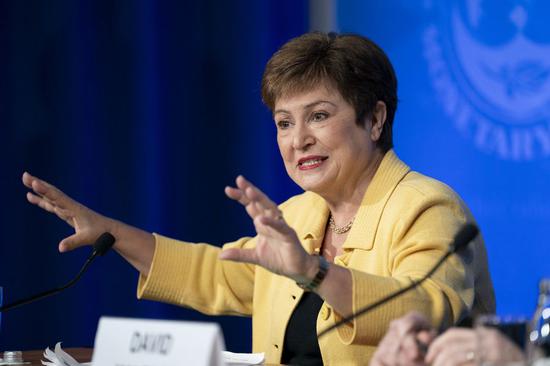The International Monetary Fund (IMF) has presented some policy measures that will help reduce the adverse effect of the coronavirus pandemic on the socio, political and economic life of member-nations.
The Bretton Wood Institution stated that monitoring, containing and mitigating the effects of COVID-19 should be top priorities for countries.
The IMF disclosed that timely and decisive actions by health authorities, central banks, fiscal, regulatory and supervisory authorities could help contain the outbreak of the virus and offset the economic impact of the pandemic.
In the outlined policy measures, the IMF advised that fiscal policy authorities must be up to speed to provide considerable support to the most affected people and firms including the informal sectors of the economy.
The global financial institution urged the central banks to support the demand and confidence of consumers and businesses by not tightening financial conditions, reducing interest rates on credits for households and businesses and ensuring that the market is liquid.
The other measures by the IMF are:
That regulatory and supervisory response must try to preserve the financial stability and the soundness of the banking system while sustaining economic activity.
That help should be provided to poorer and the most vulnerable countries by providing equipment and financing to prevent and treat infections.
Ensuring sufficient paid sick leave which will help reduce the contagious effect of the disease. Health interventions should be directed at countries with less reliable social safety nets in order to reach the informal sectors and those living in extreme poverty.
Systematic testing which is key in helping to document progress and when and inform when it’s safe to resume activity in previously affected regions.
Immediate increase in public health expenditure.
Extraordinary recruitment in the health sector and support for medical teleconsultations.
Provision of liquidity by central banks to support the market and reduce stress on key funding markets through open market operations, expanded term lending and other measures such as outright purchases.
Although IMF admitted that significant steps have been taken in recent days and progress being made in the right direction, it pointed out that more needs to be done as it advised that decisive and coordinated action is very key in helping to provide stability to the global economy and financial markets. This will also help to boost confidence and prevent deep and prolonged economic effects.
The global financial institution urged the central banks to support the demand and confidence of consumers and businesses by not tightening financial conditions, reducing interest rates on credits for households and businesses and ensuring that the market is liquid.
The other measures by the IMF are:
That regulatory and supervisory response must try to preserve the financial stability and the soundness of the banking system while sustaining economic activity.
That help should be provided to poorer and the most vulnerable countries by providing equipment and financing to prevent and treat infections.
Ensuring sufficient paid sick leave which will help reduce the contagious effect of the disease. Health interventions should be directed at countries with less reliable social safety nets in order to reach the informal sectors and those living in extreme poverty.
Systematic testing which is key in helping to document progress and when and inform when it’s safe to resume activity in previously affected regions.
Immediate increase in public health expenditure.
Extraordinary recruitment in the health sector and support for medical teleconsultations.
Provision of liquidity by central banks to support the market and reduce stress on key funding markets through open market operations, expanded term lending and other measures such as outright purchases.
Although IMF admitted that significant steps have been taken in recent days and progress being made in the right direction, it pointed out that more needs to be done as it advised that decisive and coordinated action is very key in helping to provide stability to the global economy and financial markets. This will also help to boost confidence and prevent deep and prolonged economic effects.
Source: Nairametrics




